Tuesday November 15th 2022
With the high school season just about to begin, I had a chance to reflect a little about what has happened in the past couple of years concerning wrestling as well as my involvement at the high school level. It seems that it’s been forever, but it’s only been two years removed from the Vincent Massey Collegiate Wrestling Team, a team that I had built from the ground up (small disclaimer: Vincent Massey had a team in the 1980s but it was so far removed as to be irrelevant). That team had been thirteen years in the making, with many accomplishments attached to it. National Champions, Canada Games medalists and participants at the Cégep and University levels who accumulated their own set of accolades at the higher levels. In short, it was a good program. Fast forward to today and I’m starting all over again at my new school, Royal West Academy.
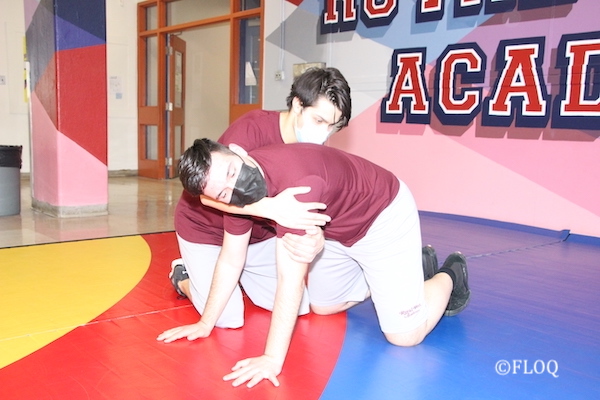
Practicing in the cafeteria: just another challenge that many wrestling programs face
Building a program from scratch isn’t easy. It’s not like coming in to take over a pre-existing program which can also present it’s own set of unique challenges. I’ve done both over my many years of coaching so I have experiences in the difficulties associated with both. However, when starting from scratch, you have to instil traditions and culture that may not even be there. You have to put your own personal stamp, while adhering to your principles. You have to find the athletes that fit the mold of a wrestler and finally, you need some support from various entities. I’ve come to realize that these are some of the components needed to start a program at the high school level.
Putting your Stamp
What I basically mean by this is that each program is run very differently. From my experience of seeing many rooms and through many training camps in Canada and around the world, every club will normally take on facets of the coach. What I mean by this is, is that they will tend to exhibit the techniques and values of the head coach. Just to highlight some of these some of these idiosyncrasies that I’ve seen over the years that may differ from club to club, we may see some clubs are heavily technical while others like to emphasize sparring over technique. Some clubs tend to prefer shorter practices with more frequency while others will have longer practices with less frequency. Some clubs are heavily influenced by strength and conditioning while other favour cross-training. Finally, some clubs will take a mixture of everything, while making certain accommodations for the circumstances they find themselves in. This all contributes to the identity of the club, which results in putting your own personal stamp.
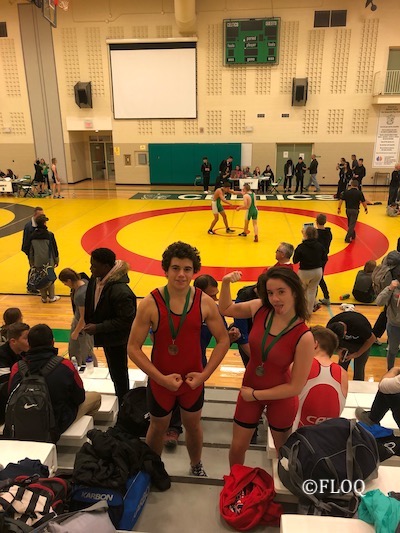
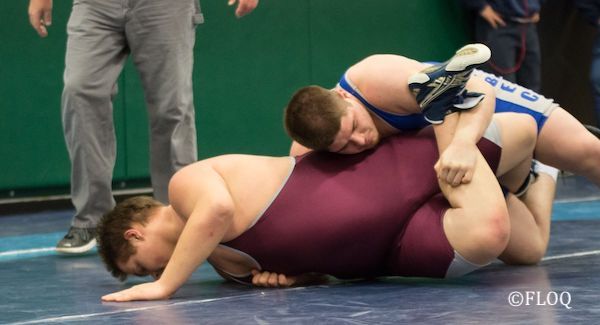
Many athletes that came from the VMC wrestling program competed in many tournaments across Canada
Lastly, you need to adhere to your principles. Principles can range from many things and will have a different level of importance for the coach in question. Some coaches will consider a strong technical base as a core value to their program while others may not be as stringent. Some coaches may allow athletes some liberties within their room, such as dating amongst team members. Finally some coaches may place winning above all else, sometimes forgetting to model the rules of proper conduct and respect in order to achieve that goal.
From a personal standpoint, I think that I would definitely stick to what’s gotten me this far in my coaching career. I’ve always had a strong technical base which brought me great success and as a result of this, I try to pass this on to my athletes, no matter what level I’m coaching at. From personal experience, I think that allowing teammates to date one another can create problems in practice so it’s a strong no where this is concerned. Last but not least, I believe that the process is more important than winning. If you focus on the process and model your ideals, the rest should take care of itself.
Building tradition and culture
This one is a tough one. After all, what is tradition to a wrestling team? What is culture for that matter? These words encompass a broad spectrum and may mean many things for many different people. I personally believe that tradition is the easier of the two to define as this just requires consistency and time. You start something, see if it works, and then continue on. Eventually it becomes the norm and therefore part of the traditions of the team.
Creating a team culture, especially where there may not have been one, is much more difficult. Having been in both situations of taking over a program and creating one from scratch, the latter is more difficult. Some schools seem almost tailor made to accommodate a wrestling program and therefore the culture of wrestling would be easier to develop in that situation. When starting from scratch, this is more difficult since the school you may be starting at may not be “tailor made”. You would need a rare convergence of having an enthusiastic student base, the right type of athletes, support from colleagues and staff, and finally, an administration and athletic department that will support you and the program in order to help instil that team culture.
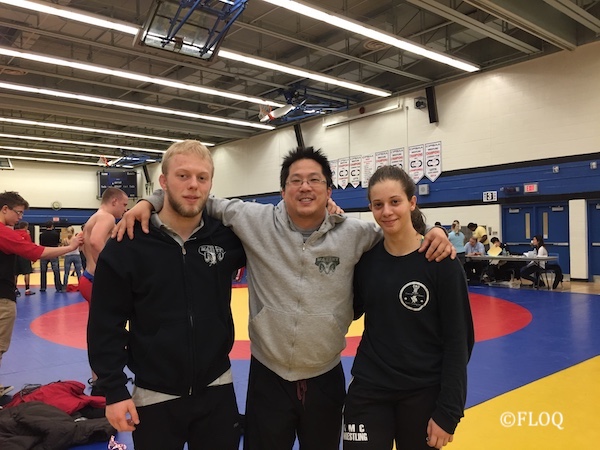
Team culture is instilled by the coach and propagated by those athletes willing to learn and pass it on
Personally, I don’t think that I’ve ever seen all of this at once, which makes instilling a wrestling culture into school very difficult. There may be some pushback, whether it’s from colleagues or even the athletic department as they may not want to disrupt their own pre-existing culture that they’ve established in the school. Speaking to the many coaches that have started new programs in the last ten years, this pushback is more common than it should be.
I don’t understand this resistance that seems to be more and more common when it comes to wrestling. It’s almost like this adversarial sentiment stems from either a sense of insecurity or they think that wrestling will poach the best athletes from their pre-existing teams. The fact of the matter is, nothing could be farther from the truth as in my many years of coaching, I’ve noticed that there aren’t a whole lot of athletes who will play one of the “major” sports and wrestle as well. Wrestling almost attracts a different athlete, a subculture if you will that isn’t very common in most schools and isn’t exhibited in many other sports. Finding this right type of athlete ties into to what I previously said about having an enthusiastic student base as well as the right type of athlete in order to make a program work.
Finding athletes that fit the mold of a wrestler
Having an enthusiastic student base is only part of the equation. Students may be excited at the prospect of wrestling but may shy away when they realize how much work would be required. After all, it’s very easy these days for students to sign up for something and then quit when they don’t like it or if it becomes too hard. Gone are the days when they were required to stay for the season because they signed up. We also see that more parents are more willing to let their kids quit an activity instead of having them honour their commitment. Commitment itself is becoming more difficult to obtain as students are overly-scheduled in many cases, with their priorities that are all over the place. To add yet another challenge to this, is perception around wrestling itself. It can be pretty hard for parents to even wrap their heads around the concept of their kids doing wrestling.
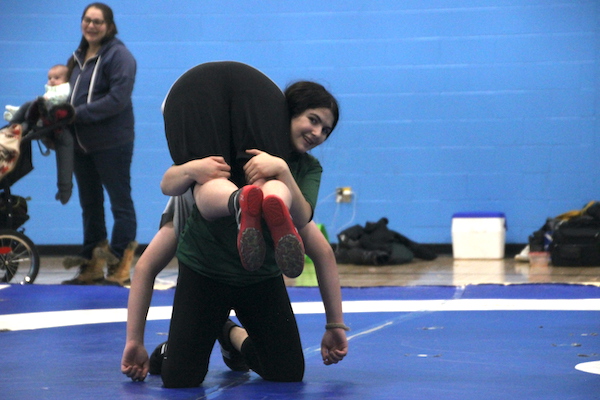
Finding the right type of athlete is getting harder and harder
Wrestling is not like basketball or volleyball which are an easy sell for a parent. These are sports that have widespread appeal and are easily understood by parents. It’s at a point where parents would prefer that their kids play football or hockey because of this widespread appeal. These sports on the surface, are infinitely more dangerous than wrestling if we look at things such as injury and concussion rates. It should be noted that I searched for actual statistics on this in order to back up this statement. Not surprisingly, there wasn’t a whole lot of data available. A study was done in the United States comparing concussion rates from all the D1 sports. However, the paper was not available for open access and only accessible to University professionals. It doesn’t take a genius to figure out why this is the case. Therefore, you can take that statement about being “more dangerous” as being a personal opinion. In short, promoting wrestling can be more difficult from the onset than any other sport.
At high school, finding the ideal athlete for Wrestling is almost like finding a unicorn. It’s almost impossible as the most gifted athletes are usually involved in other sports from an earlier age and getting them to change sport or take on another one is very difficult. The other students or athletes that are left may not have the aptitudes for wrestling. After all, it takes an athlete with exceptional skills coupled with the mental fortitude to make a good wrestler. How many athletes have I coached over the years whom have left because they found the sport “too tough”? More than I can count.
Final thoughts
So what does this mean in the end for myself and my new program? To say that I have challenges is an understatement. While I won’t highlight which challenges I’m facing (this is not a forum in which to vent my personal concerns), I will say that they’re are many. I won’t try to sugarcoat it as there have been some times where I was somewhat discouraged. There have been some moments where I’ve contemplated bending or abandoning my principles in order to make my life easier and maybe make the program run more smoothly. In the end, I’ve decided to persevere with my original approach because as a wrestler, I don’t know any other way. It should be noted, that as I finish writing this, things are trending on a more positive turn, leaving me encouraged as I move forward. To all my fellow coaches who are in the same situation, I can only hope that your new programs have success, and that wrestling makes a comeback in the province of Quebec. After all, that’s why were all in this for.
